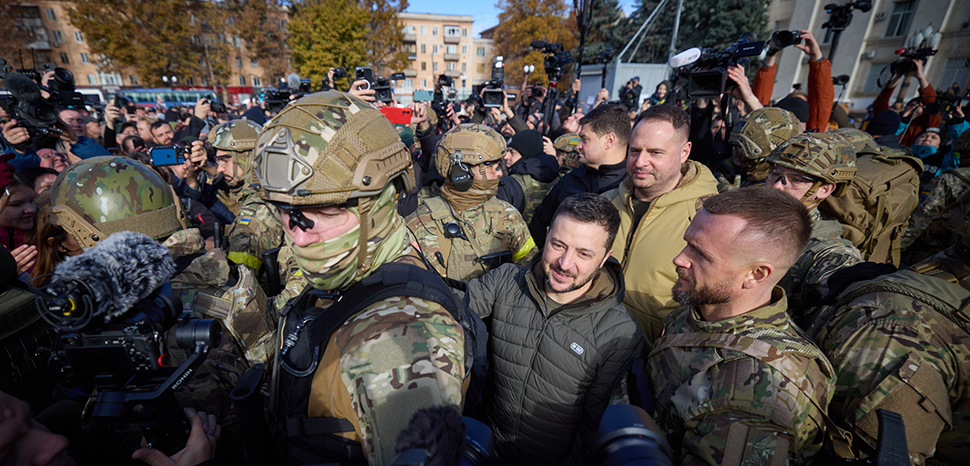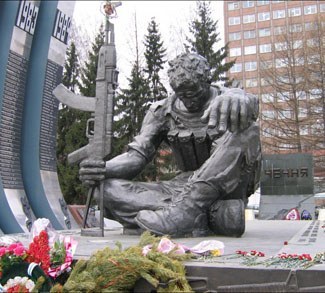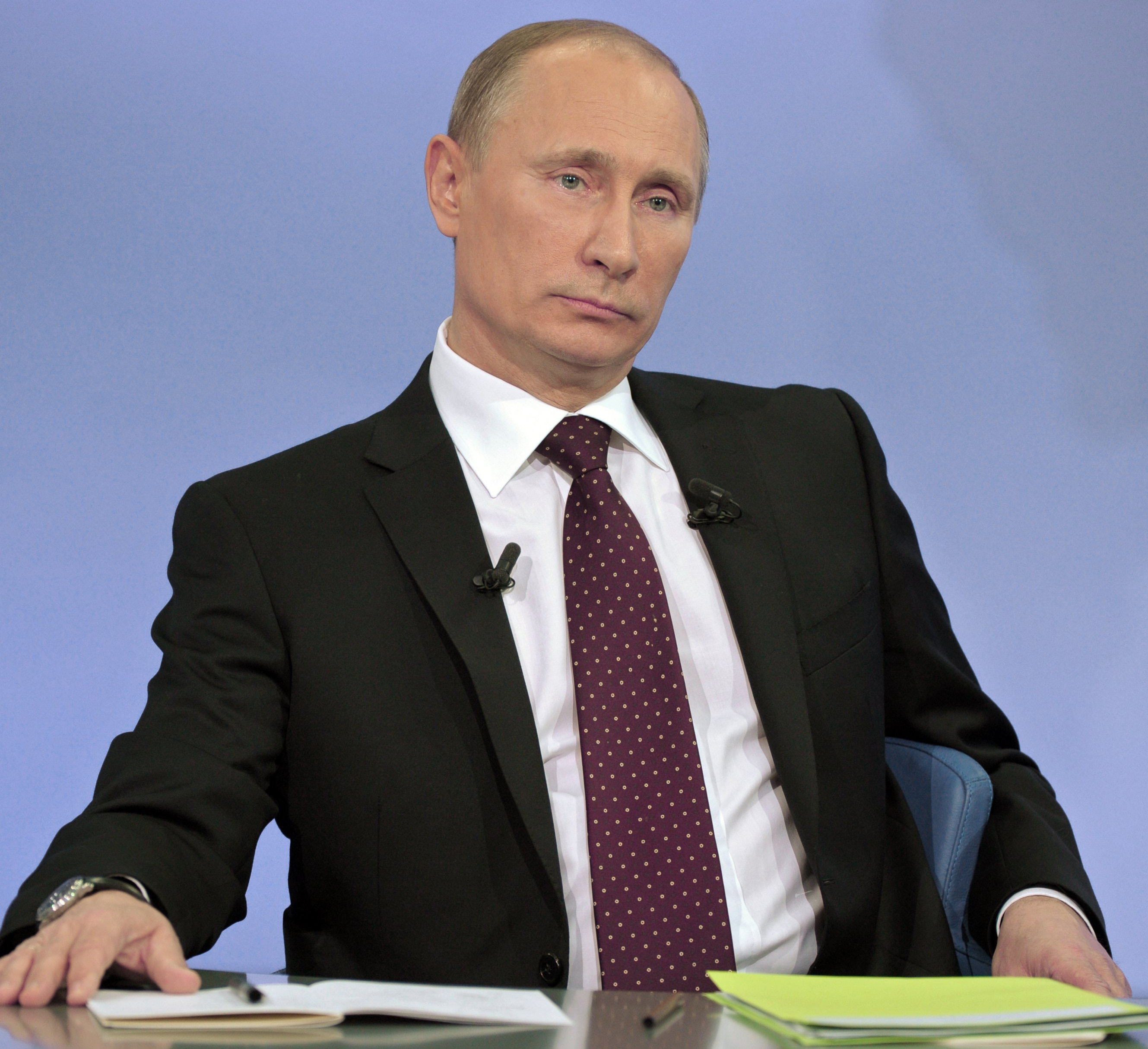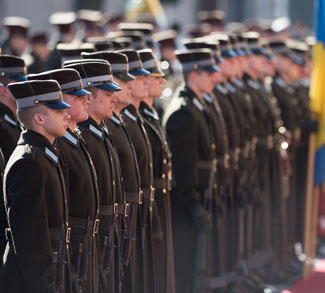The weeks and days preceding the one-year anniversary of Russia’s full-scale invasion of Ukraine reflect the contradictions and cautious optimism inherent to the largest land battle in Europe since WWII. Before the vigorous diplomacy of the recent Munich Security Conference, Ukrainian President Zelenskyy embarked on a whirlwind tour of the UK, Paris, and Brussels, to meet with Prime Minister Rishi Sunak, French President Macron, German Chancellor Scholz, and other EU leaders. The symbolism of a Ukraine standing tall and a Europe standing united was clearly visible. One year after Russia’s invasion, Zelenskyy is now able to leave Kyiv and meet all of Ukraine’s European allies in person. Likewise, President Biden is able to meet Zelenskyy in person in Kyiv to reaffirm US support for Ukraine’s existential struggle. Still donning his trademark wartime attire but swapping Zoom for the grand conference halls of Europe, Zelenskyy’s message comes at a critical time for Ukraine as another major Russian offensive starts to materialize. While appearing by video at this year’s Munich Security Conference, Zelenskyy struck his usual balance between respect for the many contributions given by Ukraine’s allies thus far with the determination that much more needs to be done.
When Zelenskyy bravely left Kyiv to attend last year’s conference in Munich only a few days before Russia’s invasion, the mood in Europe was still one of disbelief that Putin would follow through with his aggressive plans. There was no ‘Zeitenwende’ or turning point in German foreign and defense policy, Finland and Sweden were content to remain outside the NATO alliance, and the Russian military was still believed to be a formidable fighting force that could swiftly outmaneuver the Ukrainians and capture Kyiv. Now, a year later, the UK is sending Challenger 2 tanks and training Ukrainian fighter pilots, Germany has approved the sale of Leopard tanks to Ukraine, and fighter jets from London and Washington are likely to be the next major defense item Kyiv will be receiving. The confidence of the West suggests that the time for fearing Russian escalation has long passed, and the desire to provide Ukraine with the weapons capable of recapturing Crimea and striking deep into Russia is likely to increase. Echoing this view at Munich this weekend, a unique coalition of General David Petraeus, journalist and historian Anne Applebaum, and Finnish Prime Minister Sanna Marin all agreed that attacks on Crimea could increase pressure on Russia to come to the negotiating table.
Across the Atlantic in Washington, the tone from military leaders is more cautious. The Washington Post recently cited a senior Biden administration official as saying the US ‘can’t do anything and everything forever,’ with the administration holding the ‘very strong view that it will be hard for Ukraine to keep getting the same level of security and economic assistance from Congress.’ In contrast, National Security Council spokesman John Kirby insists there is no timeline for the end of US support. While Senate Minority Leader Mitch McConnell recently gave an interview in which he said ‘defeating the Russians in Ukraine is the single most important event going on in the world right now,’ support for Ukraine from Republicans has weakened considerably since the start of the conflict. McConnell and Speaker of the House Kevin McCarthy can put on a united front, but US assistance to Ukraine is likely to become more limited over the course of the year, barring any quick successful offensives by Kyiv that could rapidly change the momentum on the battlefield.
In continental Europe, Ukraine’s allies continue to strike a balance between full support for Ukraine and cautious engagement based on their target audience. At Munich, President Macron struck a defiant tone in support of Ukraine in his public comments, but his later comments aimed at a domestic audience were much more restrained and even accommodationist towards Russia. However, Germany’s new defense minister Boris Pistorius outlined the West’s war aims more clearly than those in Washington, London, or Paris when he simply stated that ‘Ukraine must win the war.’ Chancellor Scholz didn’t go as far as Pistorius in defining the endgame as a Ukrainian victory, but rather as a victory against Putin’s revisionism. Pistorius’ role in crafting Germany’s security policy still needs to be determined, as the Chancellery determines weapons deliveries, and the Finance Ministry is responsible for the defense budget. Pistorius’ greatest impact is likely to be in modernizing the aging Bundeswehr and pressing for a minimum of 2% of German GDP to be spent on defense. Pistorius and Scholz are broadly aligned on the need to increase defense spending but may still clash as it relates to their public comments, as Scholz fears confrontation with a nuclear-powered Russia and may hold greater reservations over Ukraine’s entry into NATO.
One year after the Russian tanks were set in motion, Ukraine’s economy has also taken a severe beating, contracting by 30% in 2022. According to the IMF, the Russian economy has not contracted nearly as much as Ukraine’s and has proven to be more resilient against sanctions than some had hoped. Likewise, Russia retains allies in well over half of the world’s population and is continuing to build bridges in nations from India to South Africa and Brazil. Russia is isolated in the West, but it is not yet isolated globally. As the war moves into its second year, Ukraine’s list of allies is largely set and working in tandem, whereas Russia’s remains more malleable and could even increase.
The greatest divide in the second year of conflict is between whether a full Ukrainian victory that inflicts great pain on Russia or a ‘peace without victory’ in the Wilsonian tradition prevails. President Woodrow Wilson’s remarks during World War I in January 1917 bear a great resemblance to some of the rhetoric from European leaders during the present conflict. Wilson cautioned against a victory in which peace was ‘forced upon the loser, a victor’s terms imposed upon the vanquished,’ being ‘accepted in humiliation, under duress, and at an intolerable sacrifice.’ Macron echoes Wilson’s concerns in saying that neither side can ‘triumph completely,’ as Russia should be defeated but not crushed, just as he previously cautioned against humiliating Russia. For Macron and other NATO leaders, a full Ukrainian victory is ultimately desirable yet also risks setting Russia up for a period of humiliation, isolation, and further revisionism under a successor to Putin who is likely to be no less autocratic. For Ukraine’s allies, the eternal question of Russia’s place in Europe is just as important as Ukraine’s. Whether Russia would do well to experience a period of darkness before coming back in from the cold to become a more positive actor in European security remains a lingering question amongst Ukraine’s partners.
As the conference hall in Munich empties, Ukraine clearly has history on its side and the historical memories of its friends and neighbors in Europe guiding their approach to the present conflict. The question is whether historical memories will help guide Ukraine to a brighter European future post-conflict or continue to stymie its integration at the expense of maintaining a common home with a weakened, yet still domineering Russia. The greatest argument in favor of Ukraine and against Wilson’s ‘peace without victory’ is that the modern post-war system of international relations established norms and principles to guard against blatant annexation and territorial aggression, necessitating punishment for the aggressor. All of Ukraine’s allies from the US to France, Germany, and the Baltic states agree with Wilson’s caution against a victory that causes peace ‘not permanently, but only as upon quicksand.’ Where they differ is in shaping Russia’s long-term role, and thus the legitimacy of Ukraine’s aggressor. These are geostrategic dilemmas as much about moral authority as battlefield tactics that have vexed Europe for well over a hundred years and are unlikely to dissipate in the second year of Russia’s invasion.
The views expressed in this article belong to the authors alone and do not necessarily reflect those of Geopoliticalmonitor.com.




